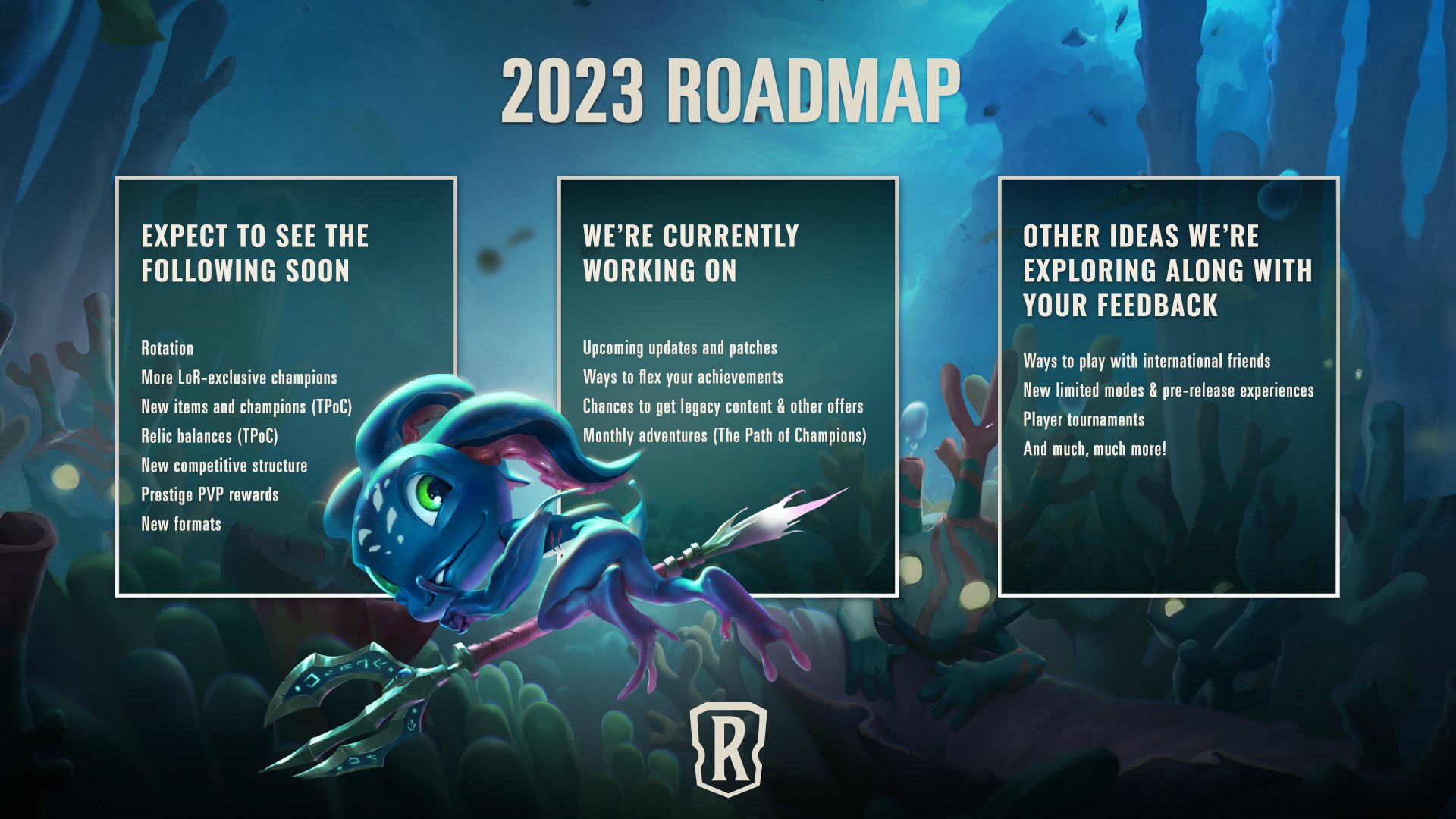
“As a small team of passionate developers, we have been taking your requests for more content with more consistency seriously,” opens part of a 2023 roadmap post from Legends of Runeterra, and with that in mind, the devs at Riot Games outline their quarterly approach to content and some of the things players of the digital CCG can expect.
Quarterly updates will effectively run in three cycles, starting with expansions that add new champions and mechanics, then live balance patches, and then small variety sets of cards meant to keep things fresh. As far as specific content updates, hard dates aren’t on the table, but they do currently fall into one of three buckets: releasing soon, in development, or under exploration (aka potential or “aspirational” features).
Among the features coming soon are a new competitive structure, more features in Path of Champions mode, and a new deck-building standard format. Features in development include ways for players to show off achievements and earn legacy content, while features like playing with international friends and letting players put together their own tournaments are among the things being explored.
















